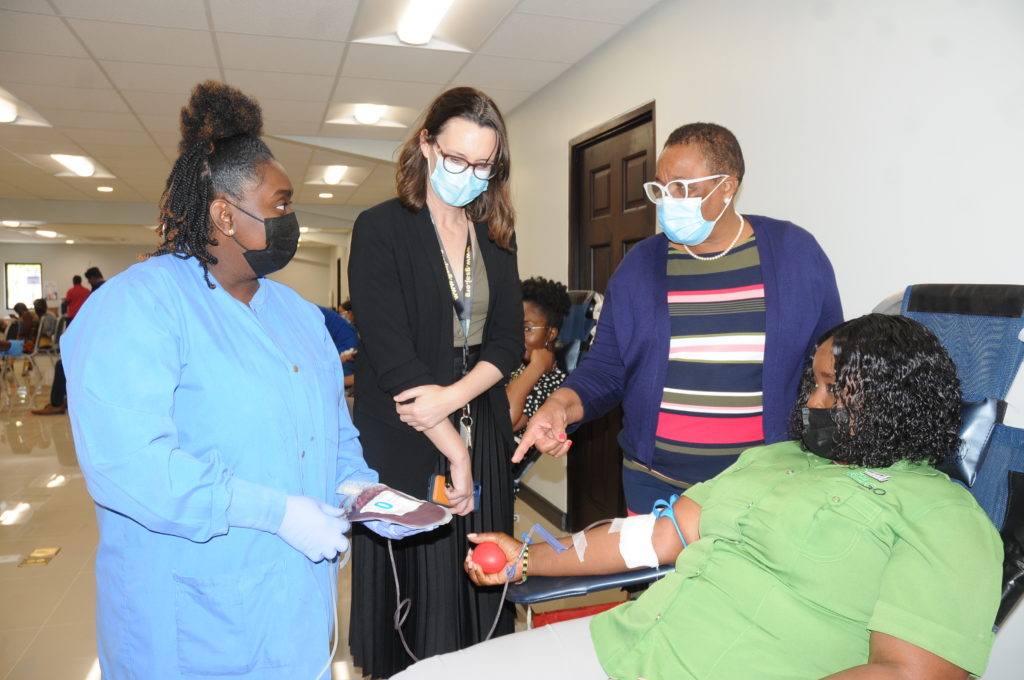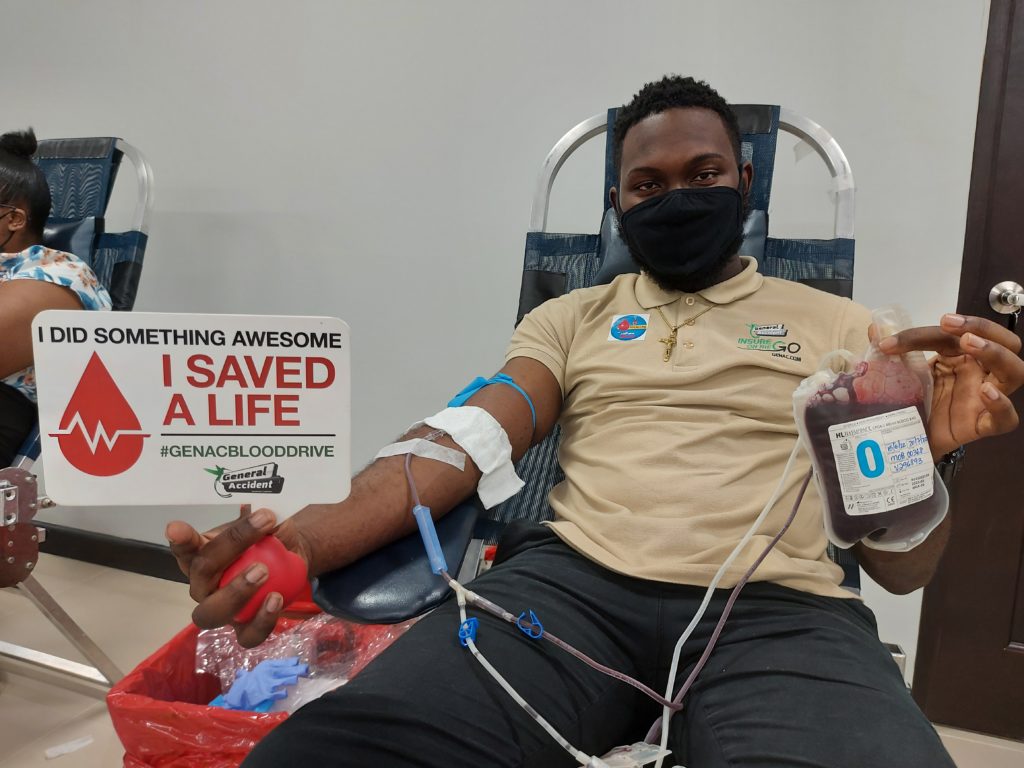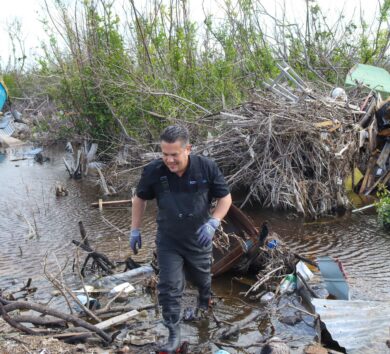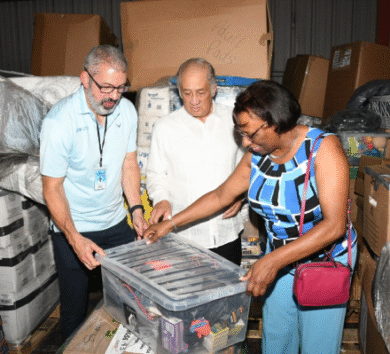

With 62 units of blood in the bag, June 15 marked another successful year of blood donations at General Accident Insurance Company’s annual blood drive.
The GenAc Blood Drive, held each year in June, recognises the life-saving gifts of blood on World Blood Donor Day (June 14).
Staff, customers and passersby alike joined in support and donated a record-breaking 62 units of the lifesaving substance, topping the 50 units collected last year.
“This is my first time donating and it wasn’t bad. The technician was friendly, and we just talked like normal. That made me feel comfortable.”
Kyle Lawrence, 19-year-old filing and mail clerk
This year’s drive not only saw an uptick in registered participants but also an increased number of young participants. One such participant, Kyle Lawrence, made it his mission to overcome his past traumatic experience with needles and donate.
“This is my first time donating and it wasn’t bad. The technician was friendly, and we just talked like normal. That made me feel comfortable,” the 19-year-old filing and mail clerk shared.

After passing the blood donor eligibility pretesting process, 27-year-old Jovan Roper was excited to know he was strong enough to be able to donate again.
“I know several people in recent years who have needed blood and I wasn’t able to donate. A few of my friends were coming to the Genac Blood Drive and I decided to join because I know it’s going to a good cause,” Roper explained.
This year’s General Accident annual blood drive was done in partnership with the Musson Foundation, and the National Blood Transfusion Service (Blood Bank) and supported by Facey Commodity.

“We had high hopes for this year’s turnout to exceed the previous staging and we’re happy to report that the blood drive was a success. We are grateful to everyone who took the time to visit our offices to donate. Your contribution will make a difference in many lives,” remarked General Accident Managing Director Sharon Donaldson.
The general insurance company continues to offer support to national development through health, education and protection of the environment.
Under this year’s theme ‘Donating blood is an act of solidarity,’ the World Health Organisation (WHO) calls on the global community to strengthen its efforts in advocating the critical contribution voluntary, unpaid blood donors make to national health systems. The WHO reiterates ‘the need for blood is universal, but access to blood for all those who need it is not’.







Comments